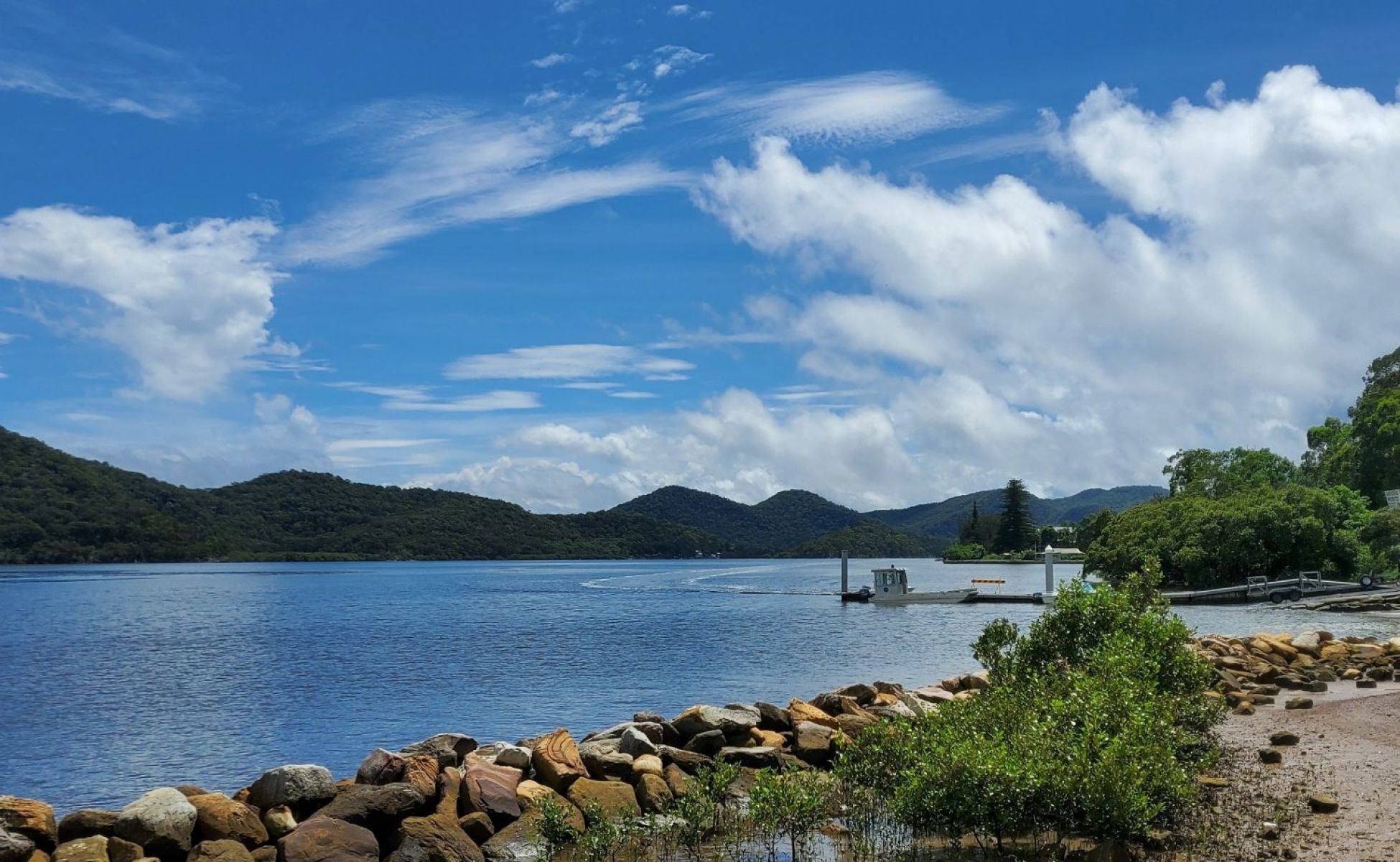On this page:

How does food waste enter houseboat greywater?
Everyday tasks like washing dishes and utensils, as well as preparing meals, leads to food wastes entering houseboat greywater. This mixture can contain bacteria and viruses (pathogens) and discharges directly into Lake Eildon.
There is a chance they can be ingested by houseboaters and other lake users like waterskiers. In houseboats with greywater treatment systems, high levels of food waste in greywater increase the maintenance and servicing requirements of these systems.
Any steps Lake Eildon houseboat users can take to reduce food wastes entering greywater is important to help ensure the lake remains a wonderful destination for its many visitors each year.
Recognising this, researchers from Monash University have been talking to Lake Eildon houseboaters to understand the pros and cons of different approaches to reduce food scraps, oils and grease going down houseboat kitchen drains and into the lake.
The focus group’s feedback will inform actions to complement the remaking of the Water (Lake Eildon Recreational Area) (Houseboats) Regulations which set out what houseboat users need to do to manage their wastewater. We are leading this process in consultation with houseboat stakeholders and agencies.
Scraping food waste into small food waste bins before washing prevents it from entering houseboat greywater.
How to reduce food waste entering houseboat greywater
Houseboat owners discussed actions to reduce pollutants entering houseboat greywater like wiping dishes with paper towel before washing as well as using sink strainers and small onboard food waste bins.
DEECA staff and Monash University researchers ran a focus group with houseboat owners in December 2022 to discuss opportunities for better managing food waste on houseboats. This research built on the outcomes of surveys and interviews carried out by the researchers in 2021 and suggestions provided by houseboat owners. Read a summary of the research.
The results from the 2021 research identified some simple actions houseboaters could take to reduce the amount of food waste in their greywater. It also showed some barriers that needed to be overcome to enable this to happen.
Taking actions to reduce food waste entering houseboat greywater is a priority for us because of the pollution risks it poses.
There are also some relatively simple steps that have been identified to prevent food waste from entering greywater in the first place. These steps were considered by the focus group of houseboat owners. They thought and talked about how effective, feasible and acceptable they were.
The focus group was run online and used discussions, live polls and a post-workshop survey to capture participants’ views and understand the beliefs, values and experiences that shape them. We are very grateful to the houseboat owners who kindly provided their time and expertise.
Houseboat use scenarios
Participants were asked to think about what food wastes are generated on houseboats.
Then they considered how different options to reduce food waste entering greywater would work on houseboat day trips or longer stays as well as when unpacking and going home. The options included:
Small food waste bins that people could scrape or wipe food waste into before washing dishes that could either be:
- Kept and emptied into compost bins, or
- Swapped for another as part of a reward incentive program.
- Sink strainers in kitchens (galleys) and bathrooms to trap large particles that would be removed and emptied into a bin when required.
- Paper towel (and holders) to wipe dishes before they are washed.
- Compost and general waste bins at key locations at marinas
Outcomes
Feedback from participants indicated that all options were considered positively, apart from the food waste bin swap and reward program. There were concerns around the cleanliness of the bins provided as part of a swap and reward program, and the rewards would not motivate houseboat owners.
Participants most valued the idea of compost, recycling and general waste bins at key locations, given it is what they are used to when managing waste at home or work.
Provision of paper towelling was seen as suitable, but given most participants already use paper towels, it was not seen to provide much additional value. Similarly, most participants believed that many houseboats already have sink strainers so this option was not rated as positively as the provision of small food waste bins with compost bins at suitable locations.
The options of providing sink strainers, paper towelling and small food waste bins were tested with houseboat owners.
Next steps
There needs to be further consideration of the feasibility of small food waste bins and composting systems and how they could be implemented. This way, gaps, challenges and unintended consequences can be identified and addressed where possible. It would also allow supporting materials or interventions to be identified and developed.
Page last updated: 06/10/23
